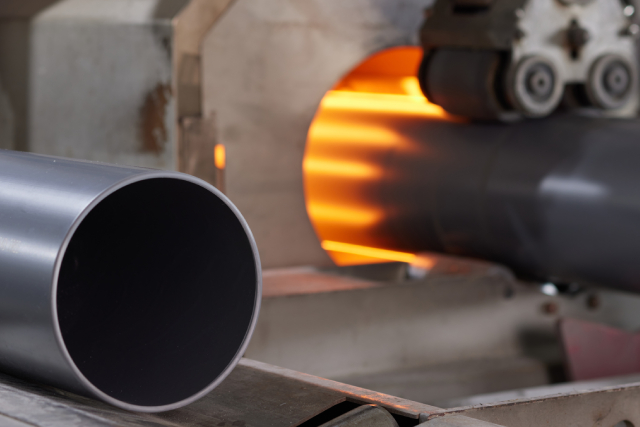
11 Jan 5 Benefits and Utility of Using uPVC Pipes Over Metal Pipes
The choice of piping systems is a critical factor in project planning and thus requires a thorough assessment of all available piping solutions. A common choice is metal pipes, such as steel and galvanised iron pipes, which were once popular but now have fallen out of favour due to critical issues such as corrosion, lead poisoning, and scaling. Today, uPVC pipes have become the go-to piping solution for many plumbing projects and hydroponic systems in Singapore, given that it is a longer-lasting, eco-friendly, and more cost-effective option. uPVC pipes and fittings provide many benefits over their metal counterparts, including high corrosion resistance, ease of installation, and reliability.
Advantages of uPVC pipes over metal pipes
1. Corrosion resistance
The biggest disadvantage of metal pipes is that they are highly prone to corrosion, which degrades their structural integrity and causes leaks and compromises water quality. In contrast, uPVC pipes, made from unplasticised polyvinyl chloride, have a non-toxic and lead-free construction that also has excellent resistance against various environmental factors like chemical erosion, rust, and hard water. This means uPVC pipes have a much longer lifespan and are a good choice for transferring potable water.
2. Sturdy and long-lasting
The lack of plasticisers BPA and phthalates found in its PVC counterpart means uPVC is a strong and rigid plastic that boasts significantly improved structural performance. The innovations around uPVC over the years have also increased its building performance and energy efficiency. Because of its durability, rigidity, and high weather resistance, uPVC is also a preferred material for all sorts of products like door frames, windows, medical equipment, and more.
3. Leak-free
Metal pipes are prone to leaks because they easily corrode and rust, which causes breakdowns. Since uPVC as a compound does not react with water and air in the same way as metal, it does not encounter this issue, and the possibility of leaks is only slim. Joint fittings get connected and sealed using solvent solutions to reduce the risk of leaking.
4. Hygienic and environmentally friendly
Lead poisoning is among the significant health problems that plague metal pipes, making them unsuitable for transporting potable water. Apart from creating health concerns in humans, lead can also cause widespread damage to the environment. uPVC pipes offer good hygiene due to their material composition being environmentally safe, non-toxic, and lead-free.
5. Saves money in the long term
uPVC pipes are much more lightweight and easier to deal with, from the transportation process to the final assembly. Furthermore, uPVC is much simpler to cut despite its rigidity. Installing uPVC pipes and fittings requires only a few inexpensive tools, and they do not require regular servicing. In short, uPVC pipes entail cheaper total labour and maintenance expenses while also outliving metal pipes.

Conclusion
For many commercial plumbing applications, uPVC remains the best piping solution that delivers excellent performance while being cost-effective and eco-friendly. Because of these features, it is no wonder that uPVC has also become the go-to for other uses like construction materials such as doors and window frames, hydroponic equipment, electrical conduits, and many more.
For the best sustainable, lead-free, and BSA-SGBC Green Mark recognised uPVC pipes and fittings in Singapore, look no further than Vicplas. We are a leading manufacturer of innovative and eco-friendly piping solutions trusted by various industries for all kinds of work, from plumbing and electrical to civil engineering. Get in touch with us today to learn more about our ISO-certified uPVC pipes and fittings, such as our SS141 uPVC pipes!
